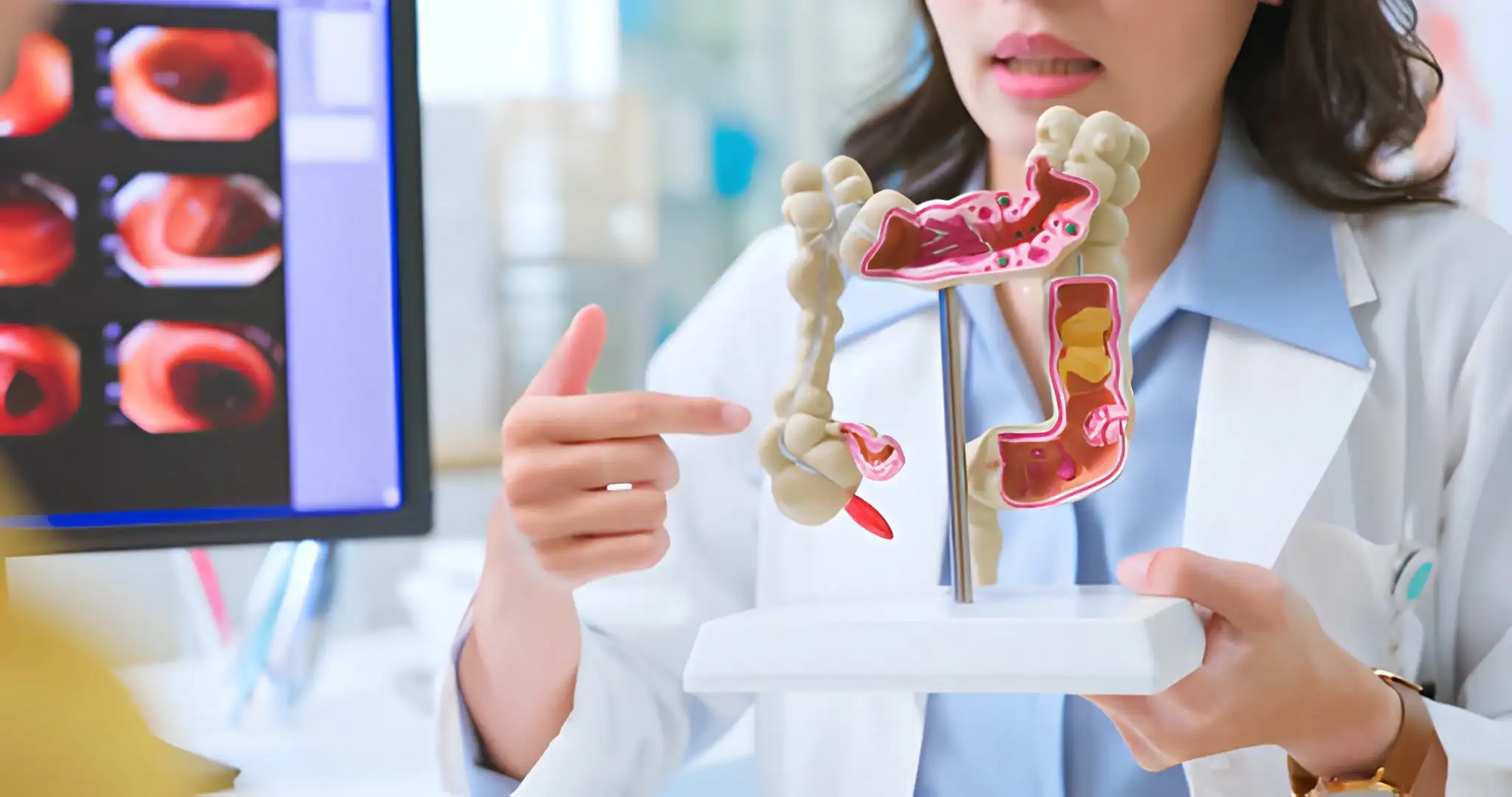Frequently Asked Questions
Colon polyps are small growths on the lining of the colon. They can develop due to genetic factors, chronic inflammation, or lifestyle factors such as poor diet and sedentary habits.
Early signs may include changes in bowel habits, blood in stool, abdominal discomfort, unexplained weight loss, and fatigue. However, colon cancer can be asymptomatic in early stages.
Diagnosis typically involves colonoscopy, biopsy, imaging tests such as CT scans, and blood tests including tumor markers to confirm the presence and stage of cancer.
Treatment options include surgery to remove tumors, chemotherapy, targeted therapy, immunotherapy, and in some cases, radiation therapy. The plan depends on cancer stage and patient health.
Yes, certain types of polyps, especially adenomatous polyps, can develop into colon cancer over time if left untreated.
Screening usually begins at age 45 for average-risk adults and may involve colonoscopy every 10 years or alternative tests more frequently, depending on risk factors.
Maintaining a healthy diet rich in fiber, exercising regularly, limiting alcohol, avoiding smoking, and staying at a healthy weight can help lower risk.
Some colon cancers have a genetic component. Conditions like Lynch syndrome or familial adenomatous polyposis increase hereditary risk.
Recovery depends on the type of surgery but generally involves a hospital stay, gradual return to diet and activity, and follow-up appointments to monitor healing and cancer recurrence.
While not all cases can be prevented, regular screening, removing polyps early, healthy lifestyle choices, and managing chronic conditions can significantly reduce risk.

